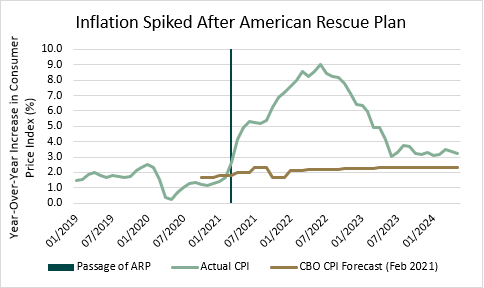Donald Trump unleashed a verbal nuke on Joe Biden and his administration over their handling of the U.S. debt ceiling last year. On Truth Social, Trump called the decision to extend the debt ceiling “one of the dumbest political moves in years.”
According to him, Biden dumped an economic grenade into Republican hands, making a disaster that should have been Biden’s problem now a Republican mess.
“There was no reason to do it—NOTHING WAS GAINED,” Trump wrote. He tagged Democrats as reckless, claiming they would rather see a depression just to hurt Republicans. “I call it ‘1929,’” the president added, comparing the Democrats’ financial management to the Great Depression.
Biden’s 2023 budget deal and the fallout
The 2023 Fiscal Responsibility Act suspended the debt ceiling until January 1, 2025. On the surface, it looked like a breather for the U.S. Treasury, which gained some runway to cover its bills. But the timing is everything.
As we reported, Treasury Secretary Janet Yellen recently confirmed that the U.S. will hit its new borrowing cap between January 14 and January 23, 2025. After that, the government will have to juggle extraordinary measures to avoid defaulting on its obligations.
Let’s break this down. The debt ceiling is the total amount of money the government can borrow to cover things like Social Security, Medicare, military salaries, and interest on the national debt. When it hits that cap, the Treasury can’t issue new debt, leaving the government essentially broke.
Programs like Medicare, tax refunds, and military operations could all take major hits. Without the 2023 extension, the U.S. would’ve defaulted on its debt for the first time in history, triggering chaos in global markets.
Even so, Trump isn’t impressed. He believes Republicans got played, leaving them to clean up Biden’s mess without any leverage. “This was Biden’s problem, not ours,” he wrote.
Republicans prepare for a showdown in Congress
Things are about to heat up on Capitol Hill. Republicans, who will take control of both chambers on January 3, are already bracing for a fight over the debt ceiling. Hard-right lawmakers have made it clear they won’t back a simple increase.
They’re pushing for deep federal spending cuts in exchange for agreeing to raise the borrowing limit. Trump has thrown gasoline on the fire. Just recently, he proposed either eliminating the debt limit entirely or extending it through 2029, the end of what he hopes will be his second term.
This wild idea, apparently endorsed by billionaire Elon Musk, didn’t survive long. A mix of Democrats and hard-right Republicans killed the plan, citing fears over ballooning deficits. Democrats accused Trump of wanting to clear space for his “big tax cuts,” which could further worsen the national debt.
For perspective, the national debt now stands at $36.1 trillion. That’s not Monopoly money—it’s the result of decades of spending combined with tax cuts. Interest payments alone hit $1.15 trillion this year. To put that in context, the U.S. spent $300 billion less on healthcare and defense combined.
What the numbers show
Treasury Secretary Yellen’s recent letter outlined the grim timeline. On January 2, 2025, the debt limit will reset, adjusted for a $54 billion redemption in Medicare-related securities. But this adjustment is a blip. By mid-January, the U.S. will max out its borrowing authority again, triggering a financial countdown.
Yellen urged Congress to act fast, warning of the severe consequences of inaction. In her words:
“However, on January 2, the outstanding debt subject to the limit is projected to decrease by approximately $54 billion, mostly due to a scheduled redemption of nonmarketable securities held by a federal trust fund associated with Medicare payments.”
A U.S. default would lead to a downgrade of its credit rating, spiking borrowing costs for businesses and everyday Americans. Global markets would spiral, leaving the Federal Reserve scrambling to stabilize the economy.
Adding to the pressure is the Republican Party’s internal divide. Some lawmakers want to weaponize the debt ceiling to force Biden into major spending cuts. Others worry about the economic risks of a default.
Trump, as always, has no patience for the cautious crowd. He’s demanding Republicans make Democrats own this mess. “The Democrats must be forced to take a vote on this treacherous issue NOW, during the Biden Administration, and not in June,” he wrote.
Land a High-Paying Web3 Job in 90 Days: The Ultimate Roadmap





